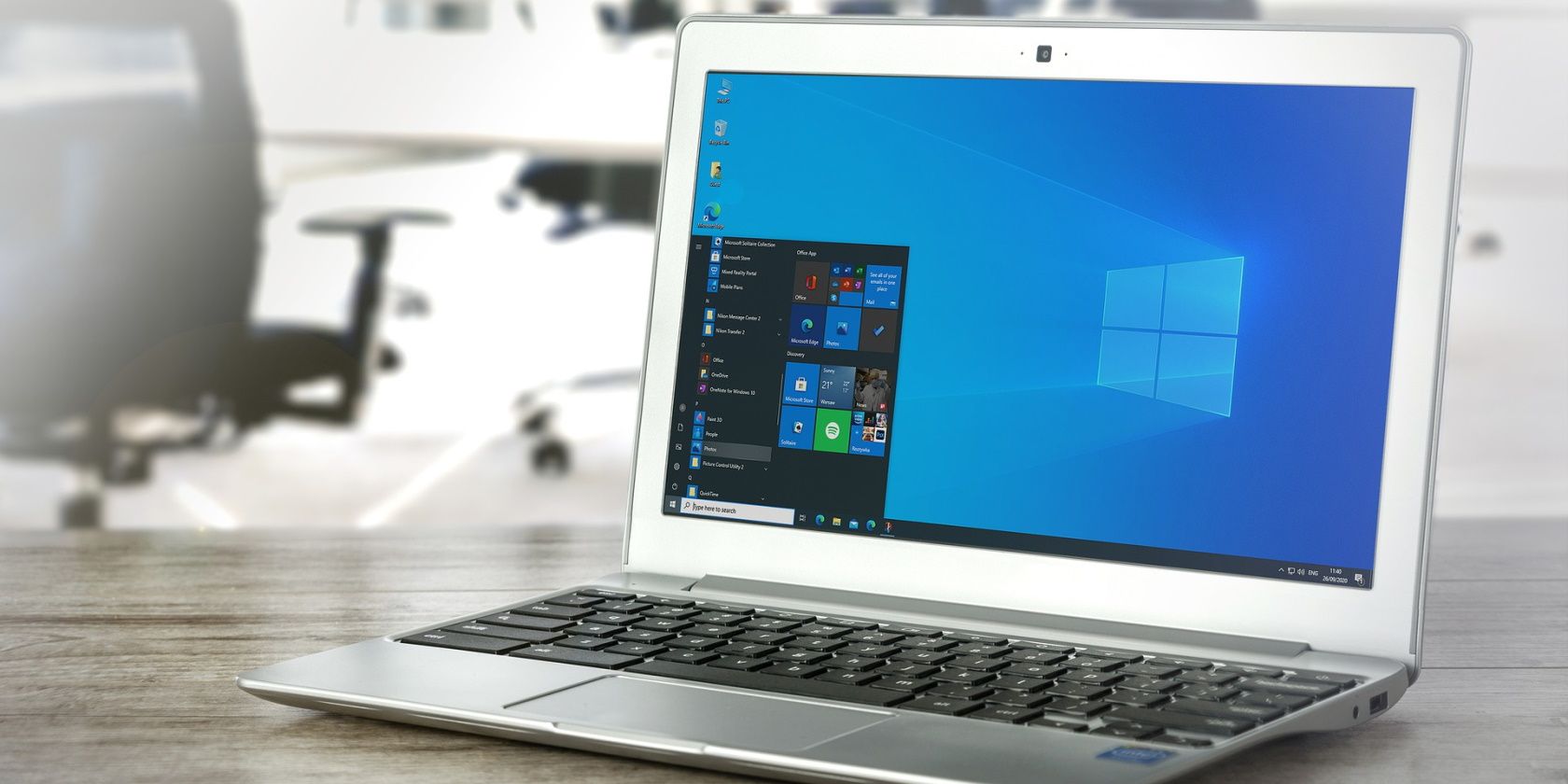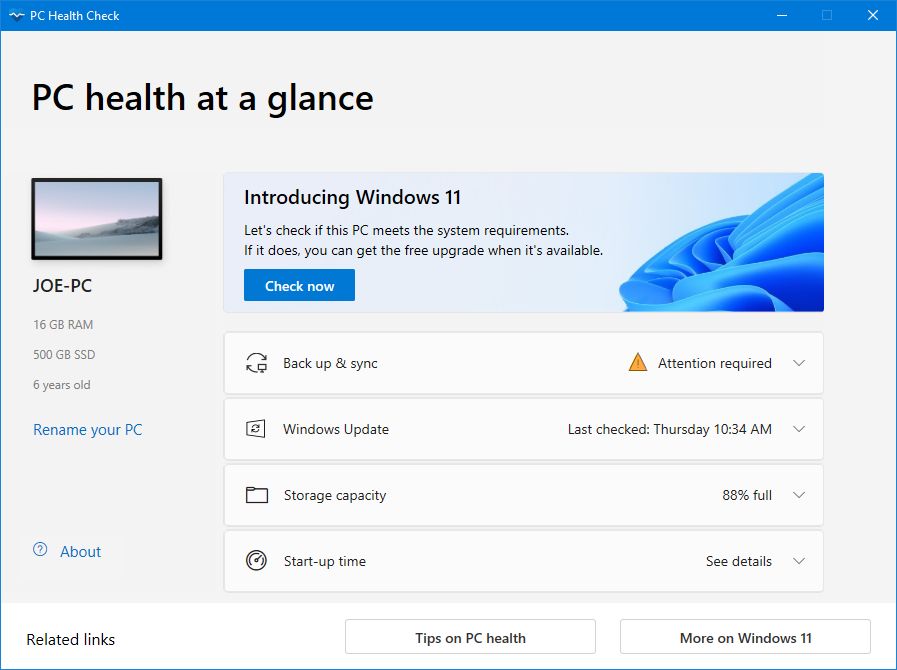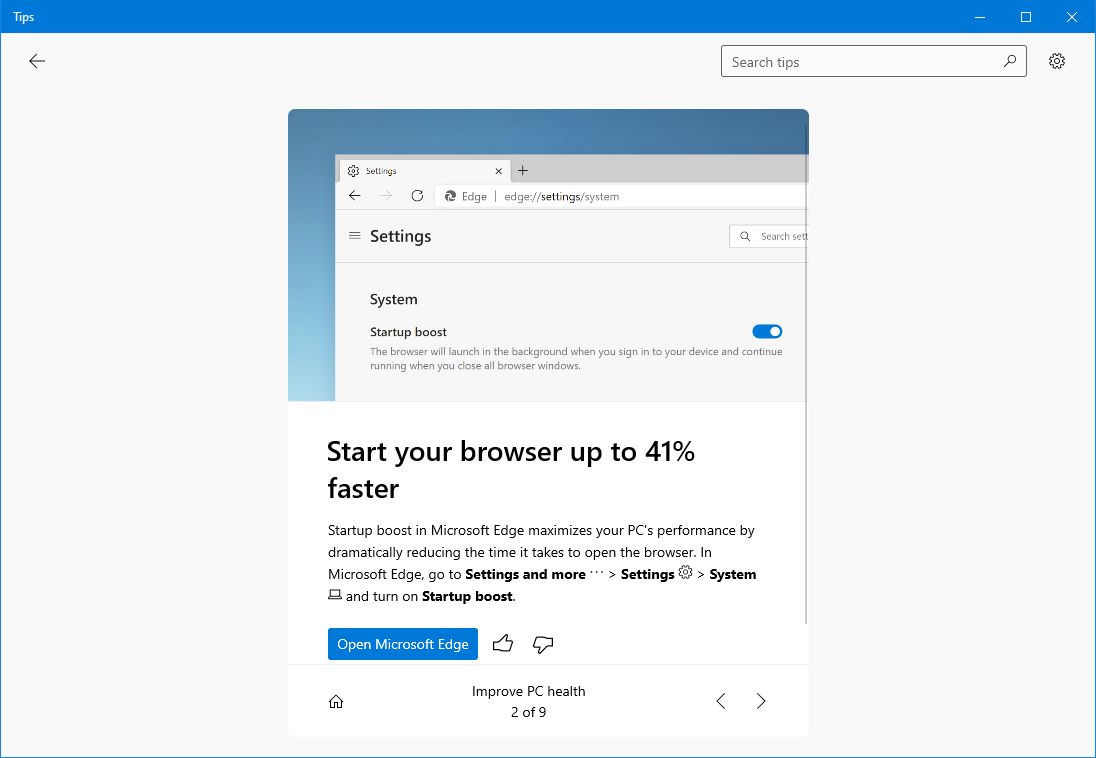Microsoft is now installing the PC Health Check application to all Windows 10 computers through Windows Update. Though you can uninstall it, some users are reporting that it returns on the next update.
PC Health Check was originally designed as a way for users to assess their Windows 11 upgrade eligibility, though Microsoft claims it's also handy to check your computer's health.
PC Health Check Now Installs Automatically on Windows 10
Thanks to the KB5005463 update, the PC Health Check application now installs automatically on all Windows 10 devices running version 2004 and later.
Originally, you had to download PC Health Check from Microsoft's website. The tool would scan your system to check if it was ready to upgrade to Windows 11. Many found they were ineligible due to not meeting Microsoft's strict TPM requirement.
Interestingly, Microsoft is not installing PC Health Check on Windows 11 devices, which makes it clear that this is intended primarily as a push for Windows 10 users to move towards the new operating system, rather than as a system diagnostic tool.
If you don't like applications installing without your permission, you can remove PC Health Check:
- Press Windows key + I to open Settings.
- Click Apps.
- In the list of Apps & features, find Windows PC Health Check and click it.
- Click Uninstall.
However, according to BleedingComputer, the app reinstalls itself the next time your computer checks for updates. Microsoft claims this is unintentional and is working on a solution.
What Is PC Health Check?
PC Health Check was originally designed as an app to assess whether your computer would be ready to upgrade to Windows 11 when it released. You could download it for free from Microsoft's website.
Now, with Windows 11 available for all, Microsoft is branding the app as a way to "monitor device health and troubleshooting to improve performance, all from the convenience of a single dashboard".
If PC Health Check is installed on your computer, you can find it through a system search. The app offers:
- Windows 11 eligibility: Scan your PC to see if it meets Windows 11's minimum system requirements.
- Backup and sync: Encouragement to sign in to a OneDrive account to sync your files and preferences.
- Windows Update: Check to see if your device is running the latest version of Windows.
- Battery capacity: See how well your device can maintain a charge.
- Storage capacity: See how much free storage space you have left on your main drive.
- Startup time: Get taken to a section where you can manage your startup programs to reduce startup time.
It also includes a series of "Tips on PC health", which includes various pushes to use Microsoft Edge, like the browser's startup boost and password management features.
Essentially, this app doesn't do anything that isn't already available in Windows 10 elsewhere. It simply acts as a hub pointing towards some of these features.
It's primary use remains as a way to check your Windows 11 upgrade eligibility. Although, considering you can install Windows 11 on an "incompatible" PC anyway, some people may not even find it helpful for that.
Will Microsoft Push Windows 11 Upgrades?
When Windows 10 released, Microsoft promoted it heavily. You couldn't turn on your PC without encountering aggressive reminders that you had to claim your free upgrade to Windows 10.
For now, Microsoft isn't pushing Windows 11 so hard. In fact, many Windows 10 users might be unaware that Windows 11 is even available. However, the automatic installation of the PC Health Check app is perhaps the first sign of a change in tactics.



